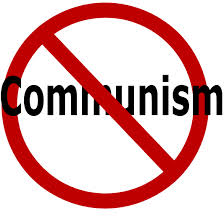More than once, when i’ve been introduced to someone as the former longtime editor of The Nation, that person has asked me: “Did you found the magazine?”
And more than once, I have resisted the temptation to denounce the questioner.
I am old (82 last July), but not that old. However, the truth is that when, in the late 1970s, I had the chance to become The Nation’s editor, I said yes largely because of The Nation’s long and noble history.
Even though I grew up in a home where The Nation (along with The New Republic) arrived weekly, my parents found it hard to understand why I would give up what looked like a promising career at The New York Times (where I worked as an editor on the Sundaymagazine).
I had taken a leave from the Times in the early 1970s to write Naming Names, the story of the Hollywood blacklist, which focused on the role of the informer during the so-called phenomenon of McCarthyism. I say “so-called” because the anticommunist hysteria that was its signature began before Senator Joseph McCarthy arrived on the scene and persisted long after he drowned in alcohol. (The historian Ellen Schrecker tells us that knowing what we know now, we should probably call it “Hooverism,” after J. Edgar, who did so much behind and in front of the scenes to promote the anticommunist hysteria.)

